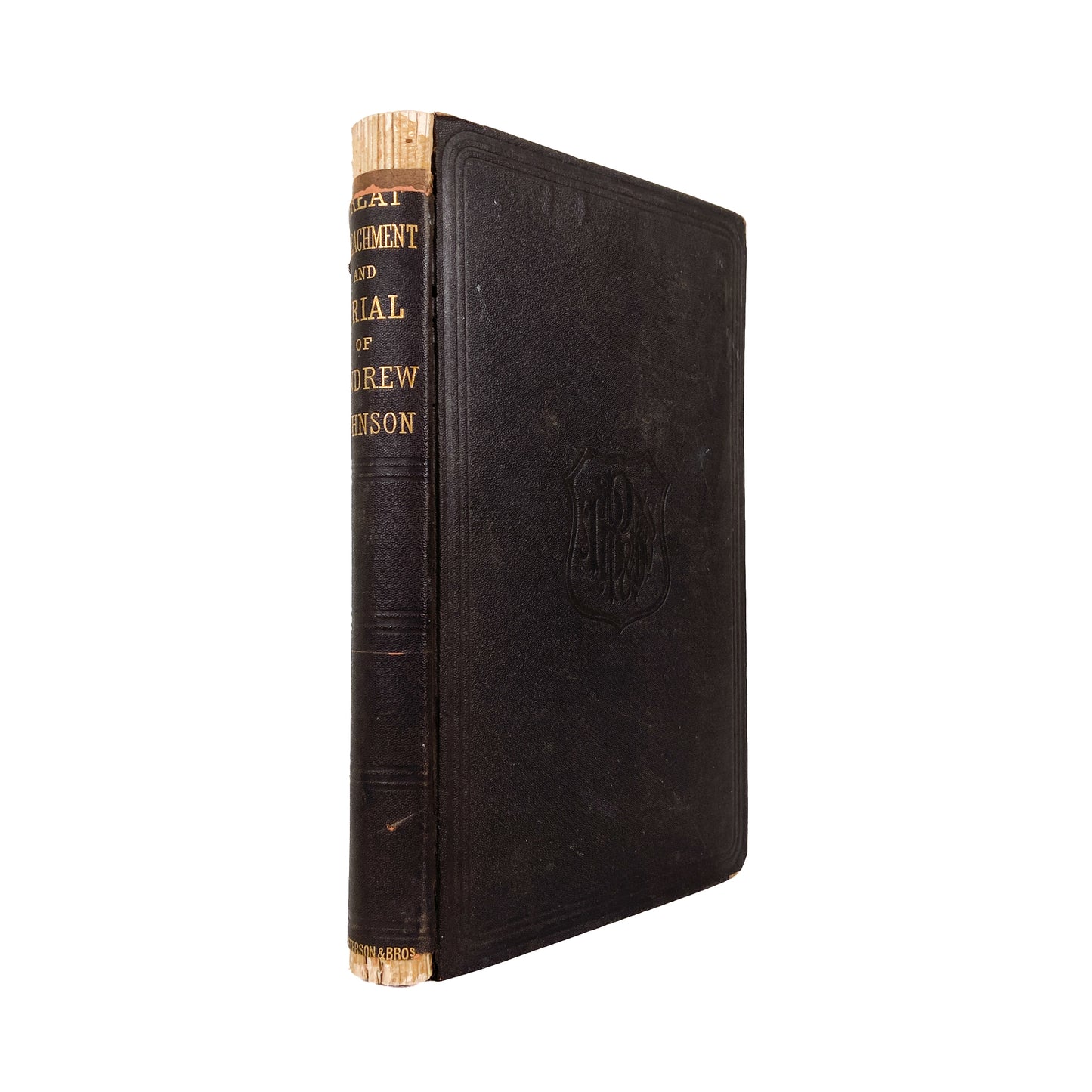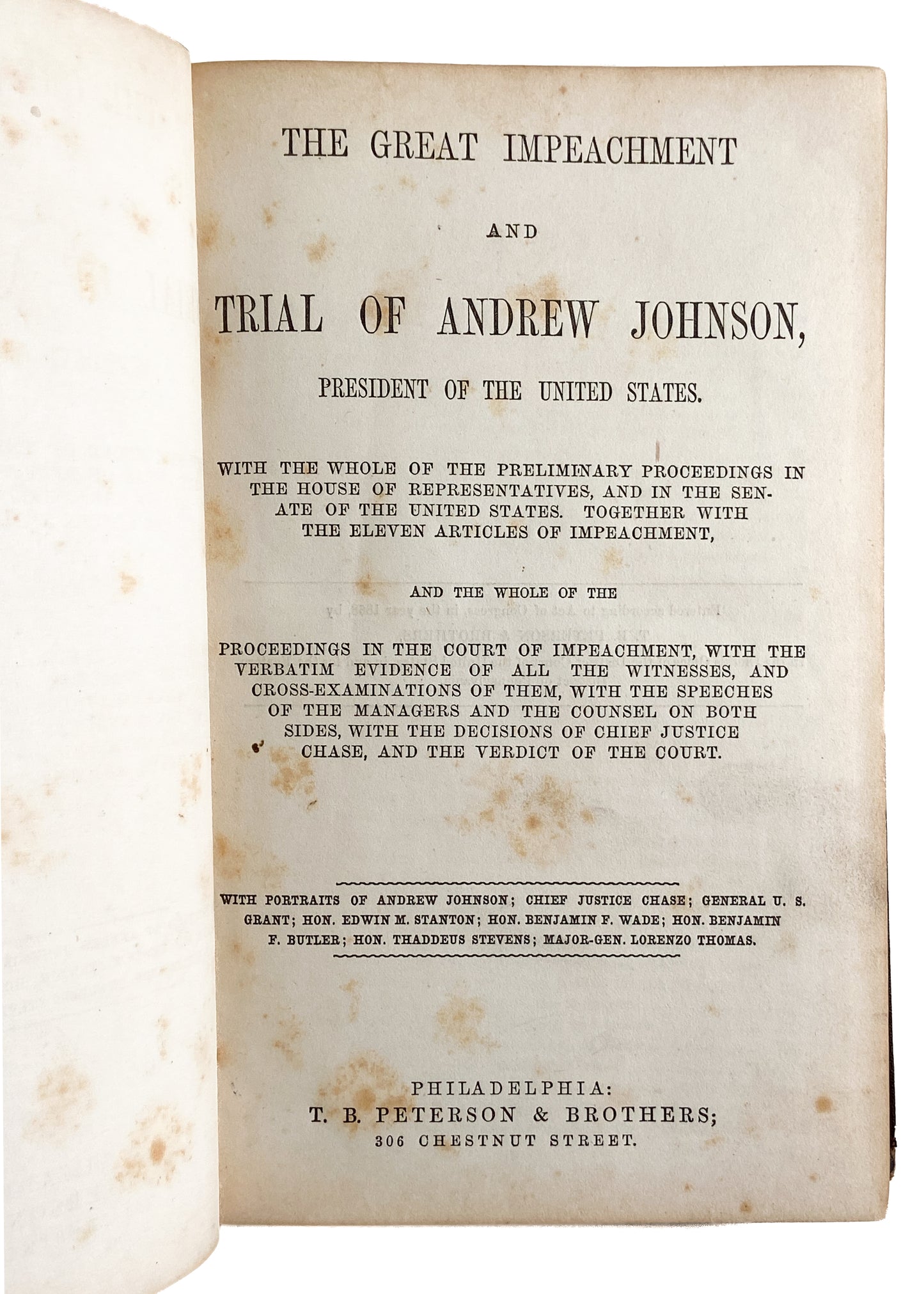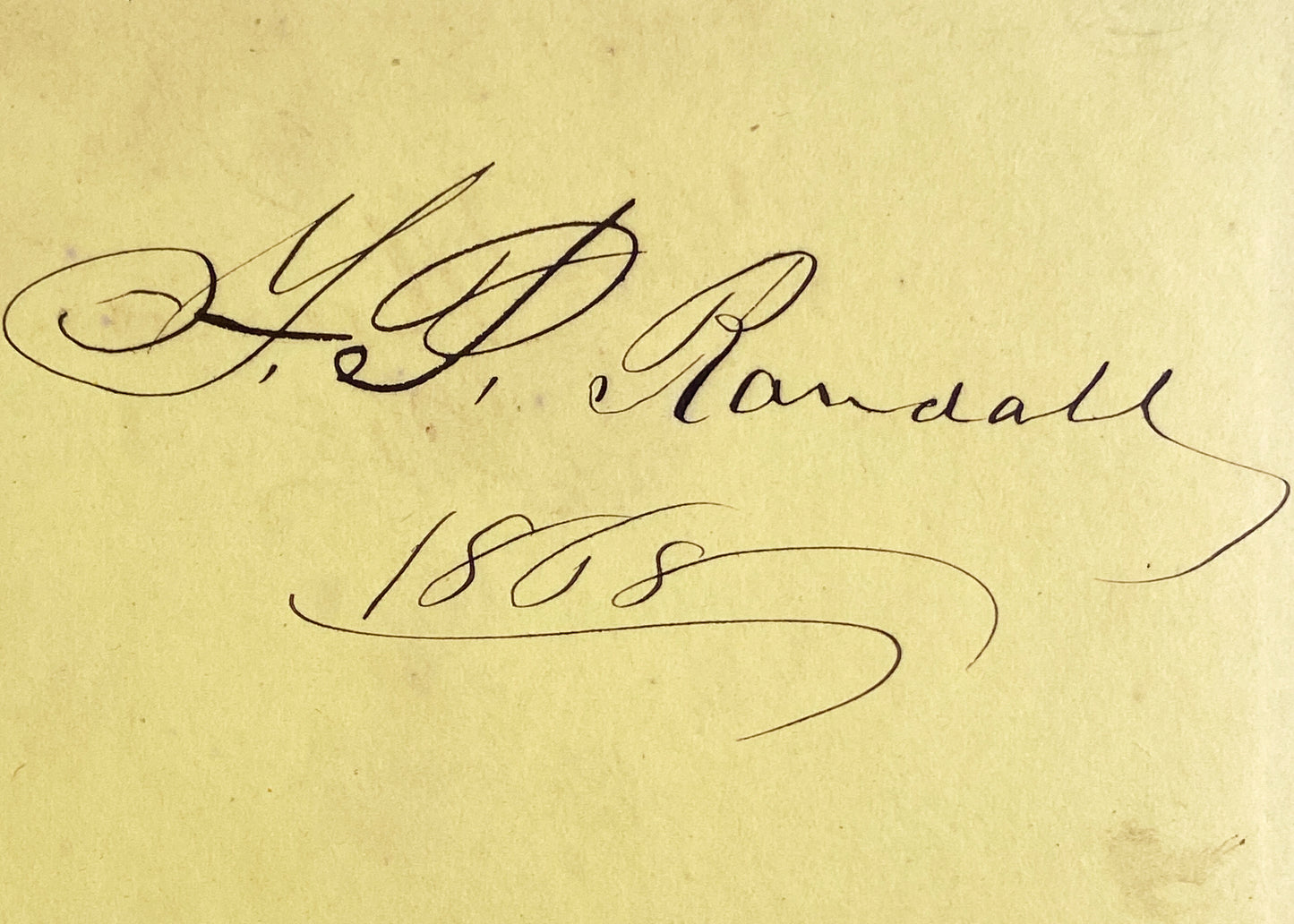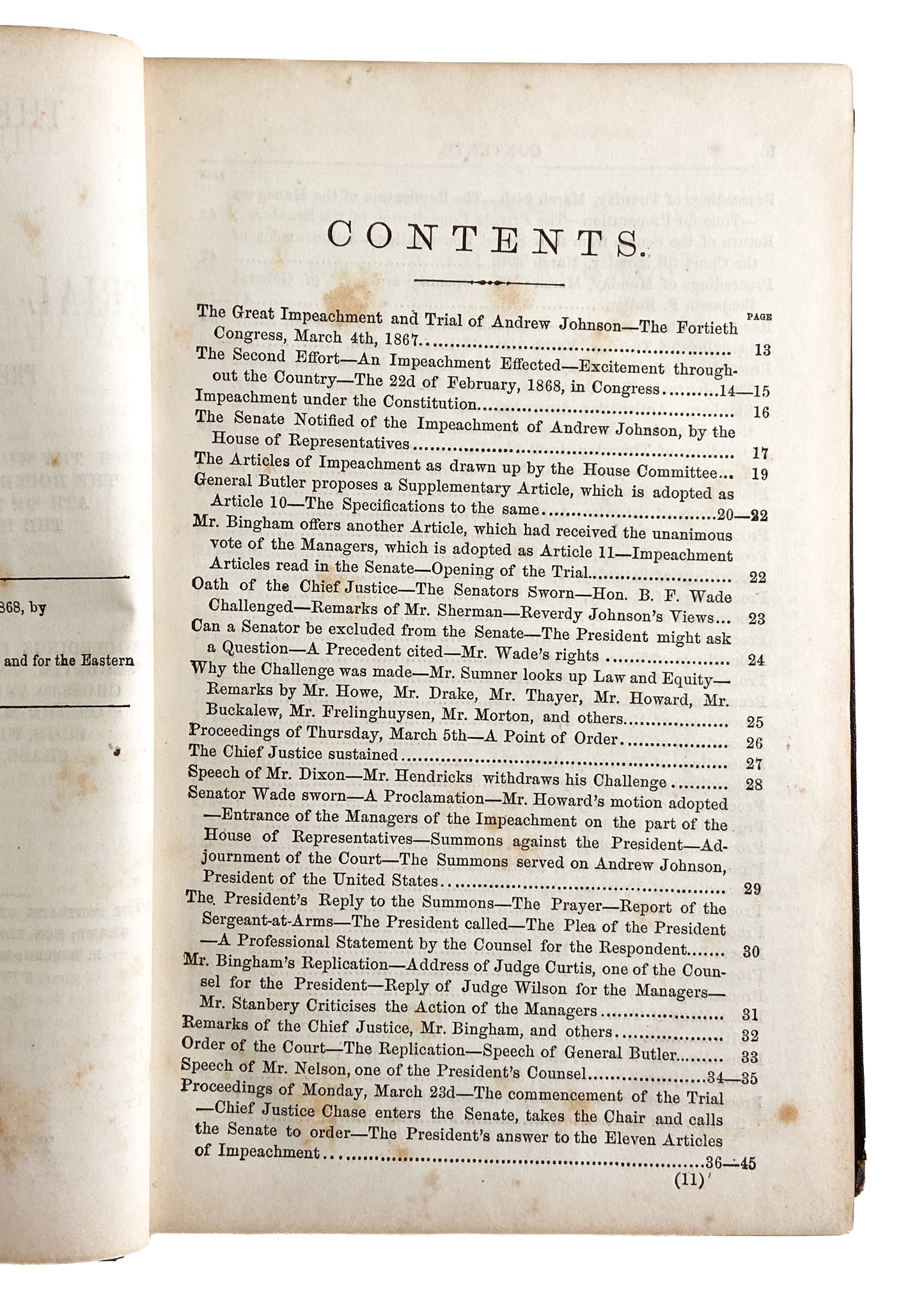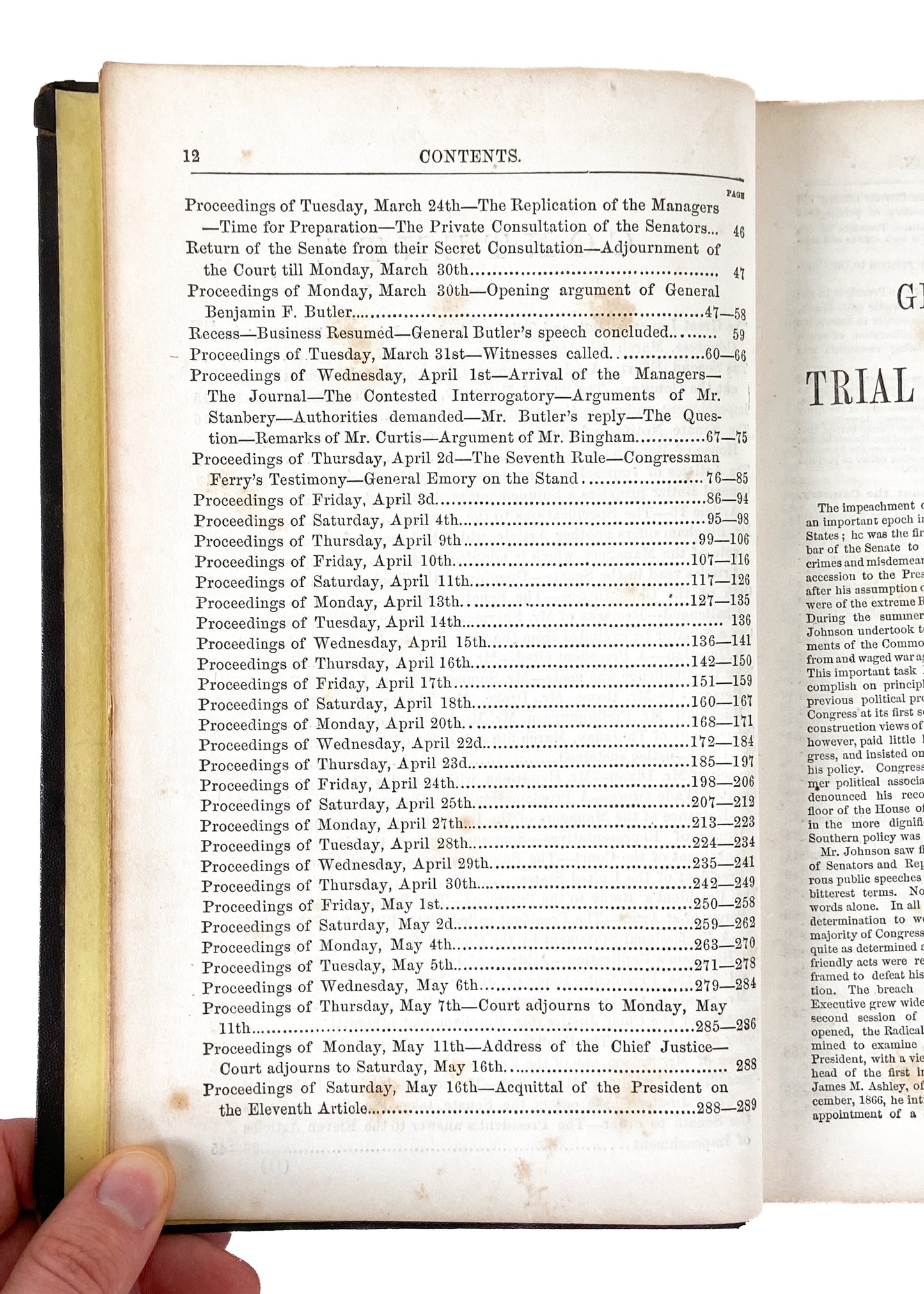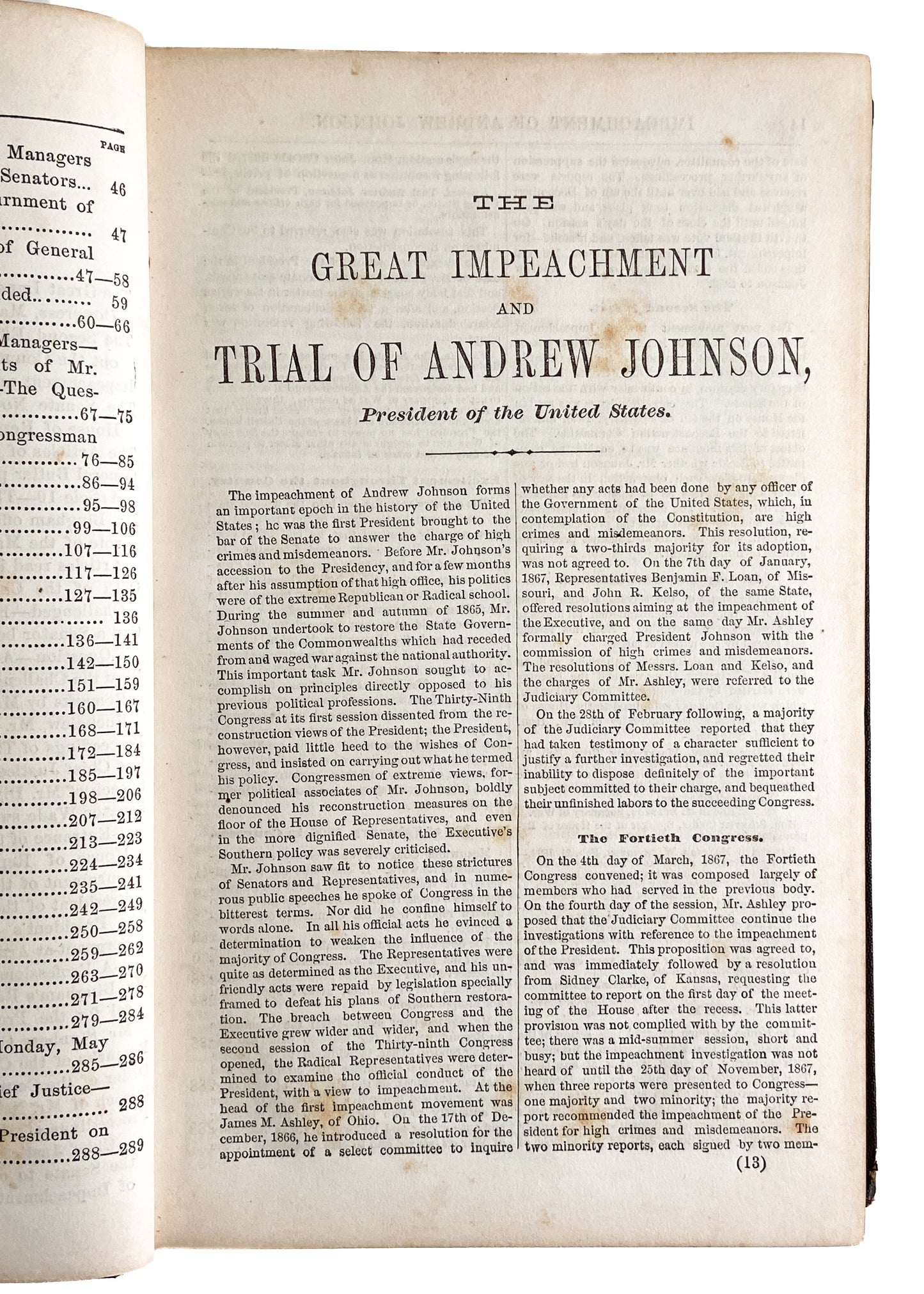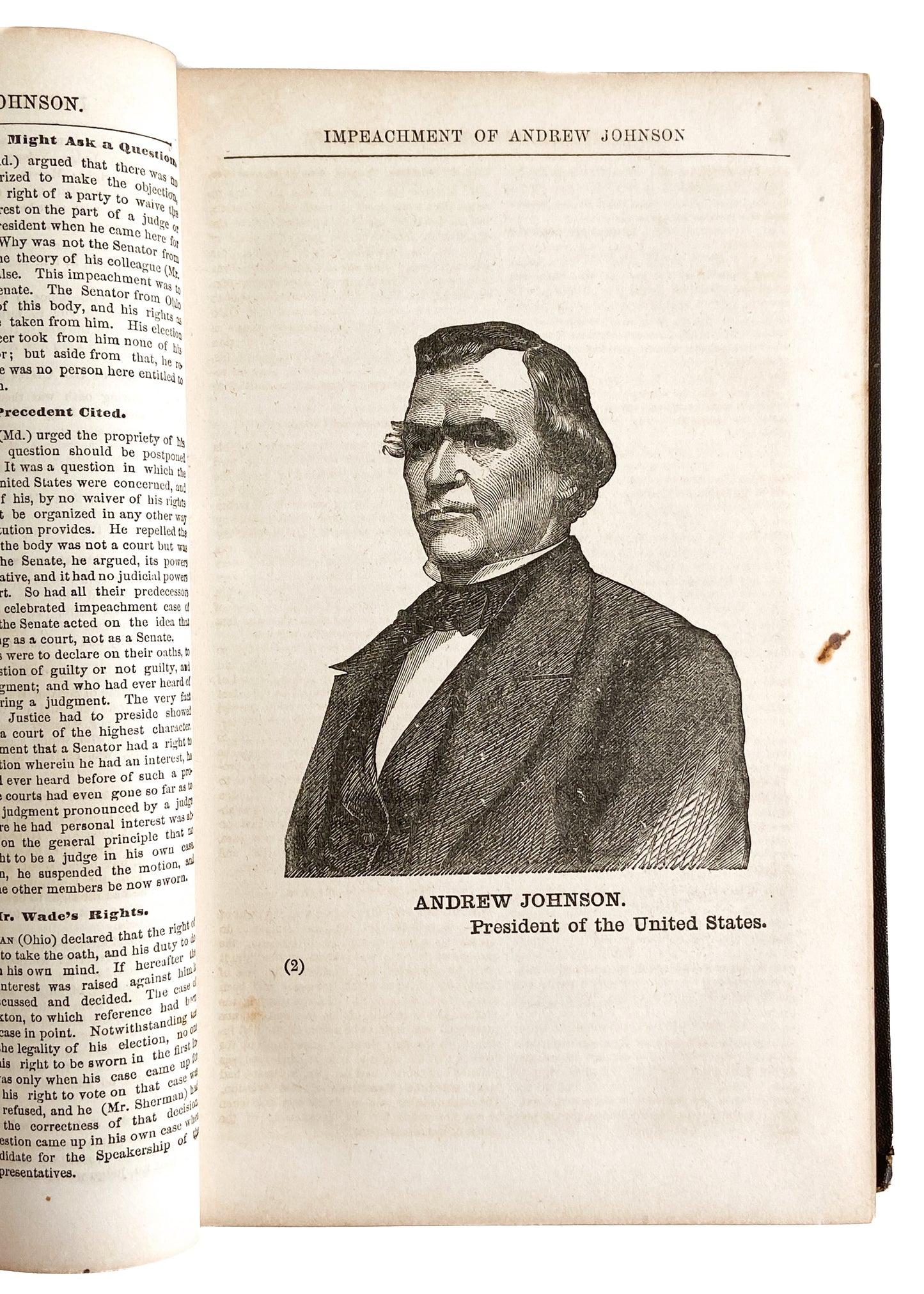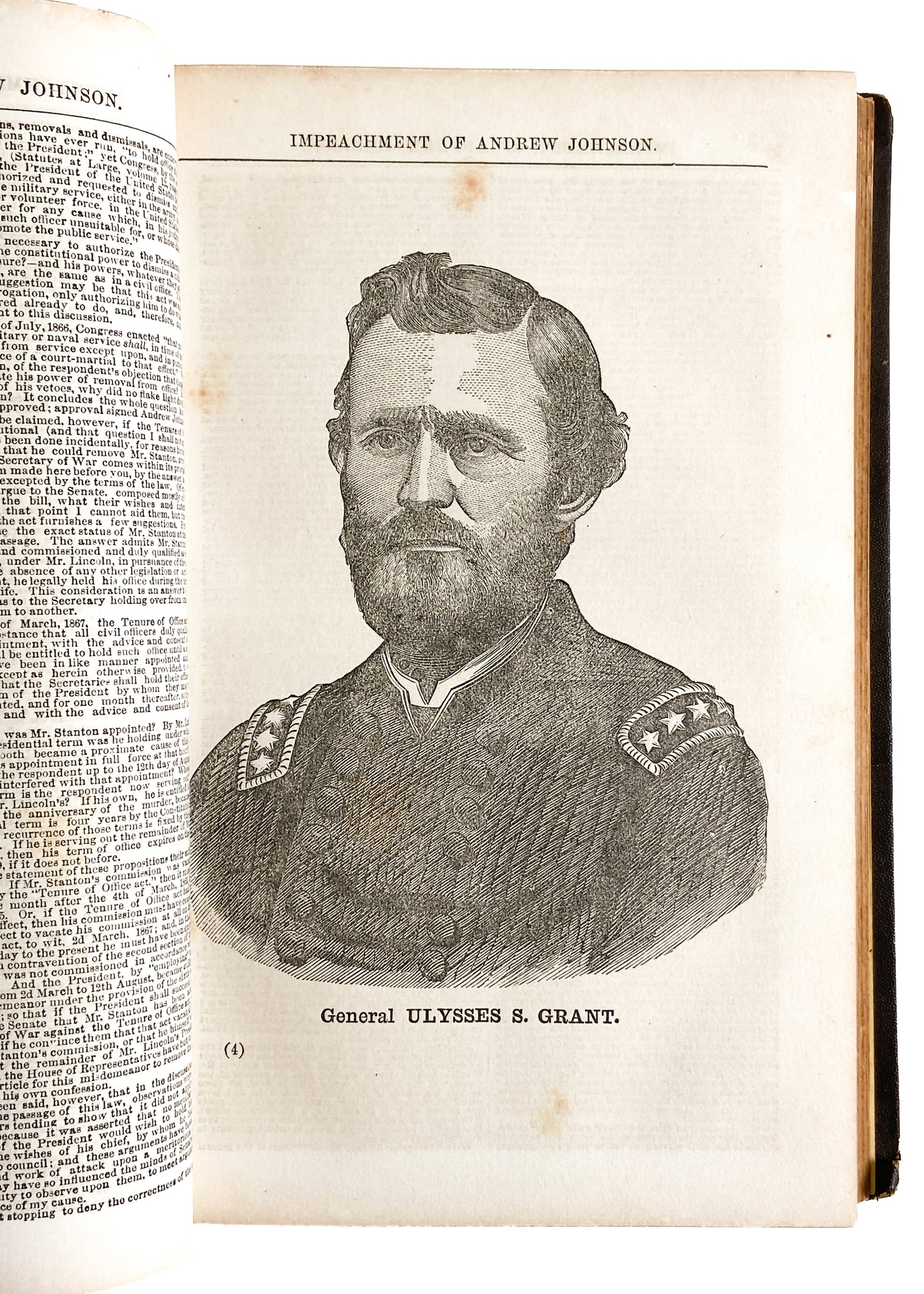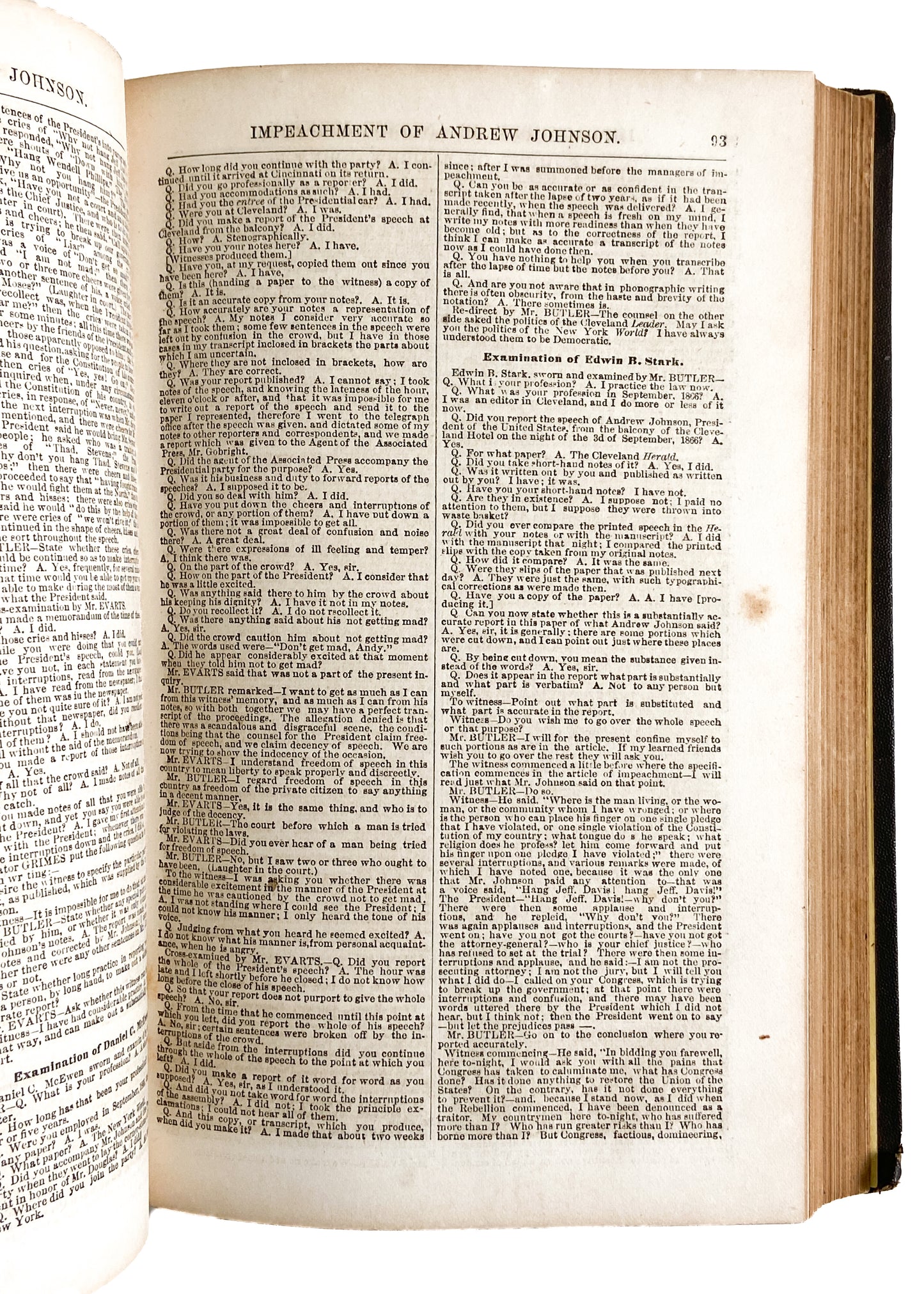Specs Fine Books
1868 ANDREW JOHNSON IMPEACHMENT. The Whole Proceedings, Including All Documents. Rare Publication w/Portraits.
1868 ANDREW JOHNSON IMPEACHMENT. The Whole Proceedings, Including All Documents. Rare Publication w/Portraits.
Couldn't load pickup availability
First edition of the combined primary documents related to the 1868 attempted impeachment of President Andrew Johnson!
On February 24, 1868, something extraordinary happened in the U.S. Congress. For the first time in history, the United States House of Representatives impeached a sitting president, Democrat Andrew Johnson.
Vice President Johnson had assumed office after John Wilkes Booth assassinated Abraham Lincoln, on April 15, 1865. He was a Union man, but his roots were in the South. "This is a country for white men," he had reportedly declared, "and as long as I am president, it shall be a government for white men." Johnson had failed to win favor with the Radical Republicans, i.e. Abolitionists of the integrationist persuasion. The radicals, who included men like Thaddeus Stevens and Benjamin Butler, wanted to guarantee the rights of the freedmen. One way they tried to do so was by passing the Reconstruction Acts, laws that provided suffrage to freed slaves and prevented former Southern rebels from regaining control of the state governments.
Believing the Acts to be wrong and unconstitutional, Johnson repeatedly blocked their enforcement. He repeatedly gave pardons to ex-Rebels. He hampered military commanders' efforts to block the rise of Southern leaders to power. In frequent speeches and interviews, Johnson publicly expressed his defiance of the Radical Republicans. They knew that their program for reconstruction of the South could not succeed with Andrew Johnson in office.
The final blow came after the passage of the Tenure of Office Act in 1867. This law made it impossible for the President to dismiss important government officials without the permission of the Senate. In a move that infuriated Congressmen, Johnson defied the act.
The President had long wanted to dismiss the Secretary of War, Edwin M. Stanton. Stanton was the only member of Johnson's cabinet who supported the Radical Republicans' program for reconstruction. On August 12, Johnson suspended Stanton. In his place, Johnson appointed the popular General Ulysses S. Grant Secretary of War. By doing so, Johnson hoped to challenge the constitutionality of the Tenure of Office Act.
When Congress reconvened, they overruled Stanton's suspension, and Grant resigned his position. The event heightened Grant's popularity and depressed Johnson's - at least as far as Republicans were concerned. Ignoring Congress, Johnson formally dismissed Stanton on February 21, 1868. With the support of the Republicans, Stanton responded by locking himself in his office and refusing to leave.
Angered by Johnson's open defiance, the House of Representatives formally impeached him on February 24 by a vote of 126 to 47. They charged him with violation of the Tenure of Office Act and bringing into "disgrace, ridicule, hatred, contempt, and reproach the Congress of the United States." It was then up to the Senate to try Johnson.
Johnson's trial began on March 4th and continued for 11 grueling weeks. During that long period, the president's enemies had time to reconsider the Stanton dismissal. Many of them were impressed with Johnson's good behavior during the trial. Johnson also took action to save himself. He promised to enforce the Reconstruction Acts and to give no more speeches attacking Congress. He also appointed a man well-liked by most Republicans, General John M. Schofield, as the new Secretary of War.
On May 16, 1868, President Johnson escaped removal from office by just one vote. For the remainder of his time in office, he continued to veto reconstruction bills, but Congress overrode his vetoes. The Radical Republicans' program for reconstruction continued. In 1868, the Republican candidate, General Ulysses S. Grant, won the presidency.
[Andrew Johnson; Impeachment]. The Great Impeachment and Trial of Andrew Johnson, President of the United States. With the Whole of the Preliminary Proceedings in the House of Representatives, and in the Senate of the United States. Together with the Eleven Articles of Impeachment. And the Whole of the Proceedings in the Court of Impeachment, with the Verbatim Evidence of All the Witnesses, and Cross-Examinations of them, with the Speeches of the Managers and the Counsel on Both Sides, with the Decisions of Chief Justice Chase, and the Verdict of the Court. With Portraits of Andrew Johnson; Chief Justice Chase; General U. S. Grant; Hon. Edwin M. Stanton; Hon. Benjamin F. Wade; Hon. Benjamin F. Butler; Hon. Thaddeus Stevens; Major-Gen. Lorenzo Thomas. Philadelphia. T. B. Peterson & Brothers. 1868. First Edition. 291pp.
Good -. Spine has chips with loss as shown, corners rubbed, but generally very solid and clean. Inscribed on ffep by F. P. Randall [Civil War era Mayor of Fort Wayne, Indiana]. All the portraits present, which have often been pilfered.
Share
